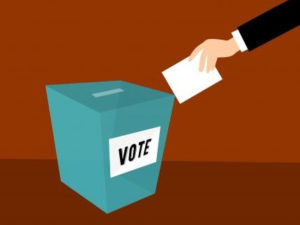Blind, Visually Impaired Mass. Voters Have Variety of Options
BY CHRIS LARABEE (VIA THE DAILY FREE PRESS)
Blind and visually impaired voters can access electronic ballots, special voting machines and help from a family member or friend to exercise their suffrage in Massachusetts.
Secretary of State spokesperson Debra O’Malley said voters who applied for a mail-in ballot could request an electronic ballot.
Voters approved for the accommodation, provided by Massachusetts Election Division, fill out a ballot on the computer before mailing or emailing it to their local elections office.
The deadline for applying for a special mail-in ballot was Wednesday, but accessible options are still available for those voting in person. Such options are in place at every election site in the state.
O’Malley said the state’s election sites have AutoMARK machines, which can assist visually and physically impaired voters.
The machines can magnify, mark or read a ballot out loud. For voters without the hand mobility to press buttons, the machines have a sip-and-puff device, which allows voters to blow or suck in air to choose a candidate.
All registered voters can use the AutoMARK machine, O’Malley said, without a permit or application.
Voters can also bring someone with them or ask an election official to help mark their ballot. In these cases, two election officials, one from each of the major parties, will assist them, O’Malley said.
“If you want to [vote in person] and you’re not comfortable with technology,” O’Malley said, “you can have anyone you want help you with that.”
Jennifer Harnish, director of rehabilitation services at the Carroll Center for the Blind, said the Center has encouraged its students to vote and has provided information on the process.
“We hosted educational events for our adult students, on voting,” Harnish said. “They were some one-on-one educational meetings just to explain the newest options for voting for people with visual impairments.”
Harnish said the Carroll Center has brought accessible voting booths to its campus in Newton to teach students how to vote in person.
“[We teach] things like how do you navigate a busy environment with lots of people,” Harnish said, “things like social distancing now, communication with others about any kind of support that you need to cast your ballot.”
Harnish, who is legally blind, said Massachusetts’ mail-in ballot system provides a safe and accessible experience for visually impaired voters.
“What I found most important is that I had options to choose from,” Harnish said, “so I could make my own decision regarding what I felt safe doing in terms of the pandemic.”
Harnish said that she filled out her mail-in ballot with the help of her 16-year-old daughter.
“The other part about that that I really appreciated was just including her so she could learn about voting at the same time,” Harnish said. “It was a nice combination of being to vote accessibly, but also parenting.”
Read the full story about Accessible Voting Options in Massachusetts here.



